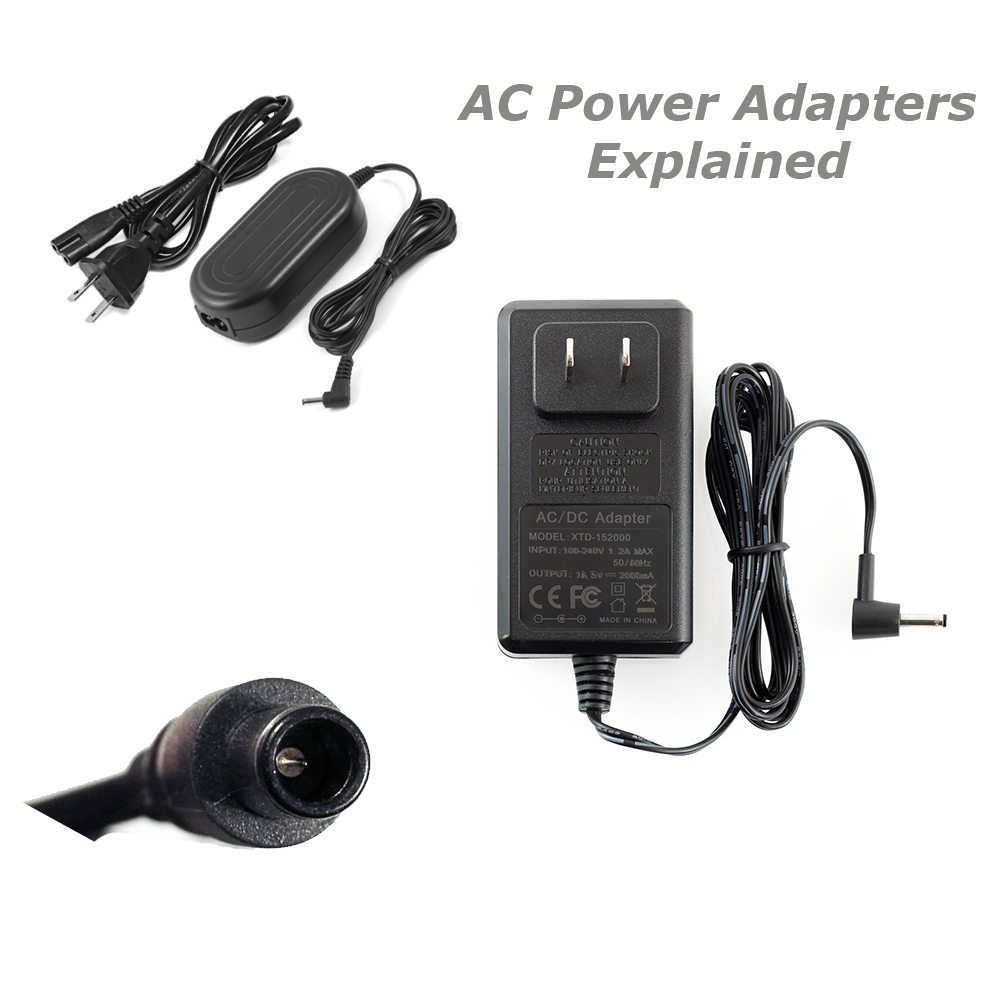AC Power Adapters Explained
A run down of what to look for when shopping for AC power adapters, their purpose, and common misconceptions about power adapters.
Understanding Your AC Adapter
o What is the purpose of an AC Adapter
>> The purpose of an AC adapter is to "adapt" AC power out of a wall outlet into the right amount of DC power for your electronic device. The primary function of an AC adapter is to power your device on other-than battery power.
o Will my AC Adapter charge my battery?
>> Most electronic devices allow the AC adapter to charge the battery, like with a laptop battery. For some devices, the AC adapter is the only way to charge the battery, like with an iPod battery or most MP3 batteries. However, there are some devices that do not allow the AC adapter to charge the battery and you need a separate external battery charger. The way the AC adapter functions with your device is managed solely by your device and not the adapter itself.
o This new AC Adapter looks different than my original adapter
>> AC adapters come in all types and sizes. Customers are sometimes confused when shopping for a replacement adapter because the new adapter doesn't look like the original. Some adapters are self-contained in a "wall wart" style format, while others have a "brick" design with an extension cord extending to your electronic device. Don't worry if a replacement doesn't look like the original. What is important is the power output and the connector size (tip size) that connects to your electronic device.
o Understanding power output
>> When searching for the right replacement adapter you need to ensure the AC adapter has the correct power output rating. The two primary ratings to match up are: voltage (V) and amperage (A). Look at the voltage and amperage ratings on your old adapter and compare them to your new adapter. Note: it's possible to have a slight difference in voltage and amperage ratings for your device to work properly. These slight variances are normal based on different manufactures.
o Is the voltage output of the AC adapter the same as the battery?
>> Not always. Often the power output of the AC adapter is higher than that of the battery. You might come across some digital camera batteries or camcorder batteries that have lower voltage output than their AC adapter. This is normal. Do not look for the battery's voltage rating to determine the AC adapter rating.
o What is "switchable" power?
>> You'll often see an AC adapter or battery charger advertised as "switchable" or "auto power converting" in terms of international use. That is to say, the product will automatically work with 110V outlets (like in the United States) or 220V power (like in Europe).
o My AC Power Adapter gets warm
>> It's normal for an AC adapter to get warm with use. Some adapters may even seem hot if used for many hours.
o Other common names for an AC Power Adapter
>> Oftentimes customers will refer to an AC adapter as something different based on what the adapter looks like, or how the customer uses the adapter. Here are the most common terms we hear: power brick, battery charger, power cord, power adaptor, wall wart, power cable. Although these terms are generally correct in how the adapter functions or what it looks like, it's important to note that an AC adapter shouldn't be referred to as a "battery charger" being that not all adapters will charge the battery.








